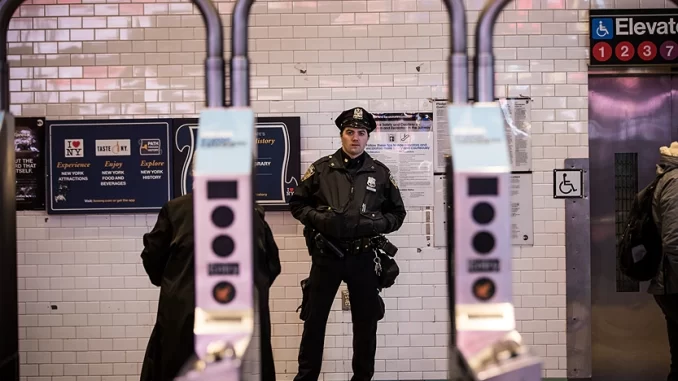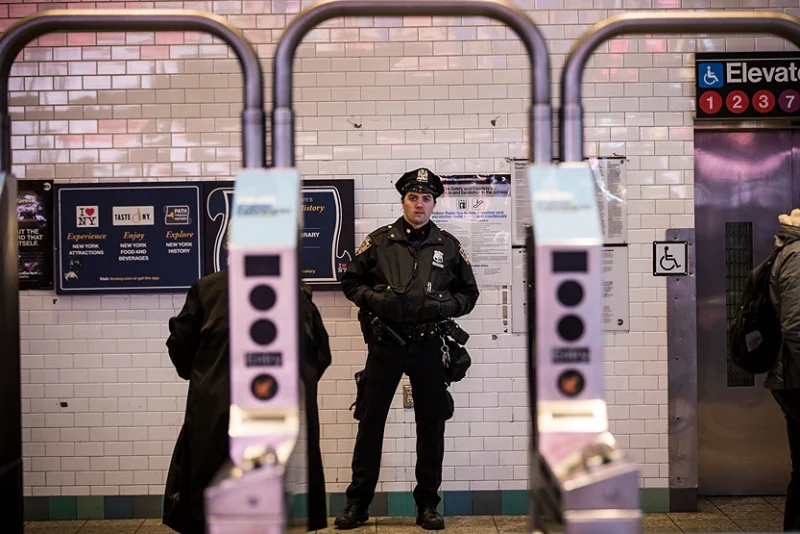

OAN’s Shawntel Smith-Hill
4:23 PM – Thursday, July 20, 2023
The staggering loss of revenue over fare evasion has prompted the Metropolitan Transportation Authority (MTA) to quietly implement surveillance software that uses artificial intelligence (AI) to spot people attempting to evade fares.
Advertisement
The new system, which has not been previously mentioned by transit authorities, makes use of third-party software that engages law enforcement in hopes of cracking down on those avoiding costs.
The MTA, which is in charge of New York City’s public transportation, stated in May that the system was in place at seven subway stations and that the MTA intends to see a considerable expansion of the system to more than two dozen more stations across the city by the end of the year.
These changes in security for the MTA come as they had reportedly suffered a loss of $690 million in 2022, due to both fare and toll evasion.
Joana Flores, a spokesperson for the MTA, has confirmed that, as of now, the new detection system does not report offenders to police. However, Flores declined to comment on whether or not this policy could be altered in the future.
MTA Communication Director Tim Minton emphasized that the primary purpose of the system is to track patterns in fare evasion and keep track of the revenue that subway systems lose as a result of the evasion.
“We’re using it essentially as a counting tool,” Minton said. “The objective is to determine how many people are evading the fare and how are they doing it.”
Civil rights and privacy advocates have remained skeptical about how the new system can potentially be used by police, despite the MTA’s affirmations that the system will not be used to assist law enforcement.
Albert Fox Cahn, the Director of the Surveillance Technology Oversight Project, expressed concerns over the implementation of the software, commenting, “We’re already seeing the proliferation of automated license plate readers. We’ve seen data collection on Uber and Lyft histories. We see tens of thousands of cameras accessible to the NYPD when people are walking about in public,” he continued.
“So it’s increasingly becoming a city where there’s no way to navigate it privately.”
Cahn, in addition to other critics of the technology, feels that the city’s effort to crack down on fare evasion is misplaced.
“We keep seeing this consistent criminalization of fare evasion even though it hurts no one,” he said. “And this really just feels like politics driving bad technology and bad policy.”
Stay informed! Receive breaking news blasts directly to your inbox for free. Subscribe here. https://www.oann.com/alerts

